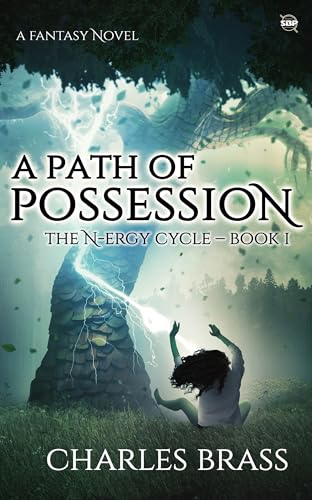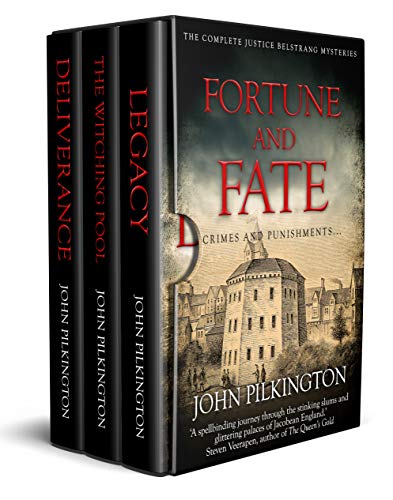“…an exciting, fascinating political thriller…about war and peace, loyalty and betrayal, politics and espionage, Greeks and barbarians, East and West, love and hate. I read it in one weekend!”
Travel back to ancient Greece with this richly imagined and intricately crafted novel that seamlessly blends history and fiction.
Don’t miss The Queen of Sparta while it’s 70% off the regular price!
Xerxes, the Great King of Persia invades Greece in 480 B.C. at the head of a massive army. Three hundred Spartans and King Leonidas die heroically blocking the Persian advance at the pass of Thermopylae. The Persians are poised to conquer all of Greece. The only one standing in their way is a woman – Gorgo, Queen of Sparta.
Though history has relegated her role to that of a bystander, The Queen of Sparta puts her in the forefront. What if she played a central role in the Greek resistance to the Persian invasion? What if she kept her true role a secret in order to play it more effectively? What if she was hiding other secrets too – dark secrets of murder and vengeance? What if the only person who truly appreciated her genius was an enemy prisoner whom she has vowed to kill? What if after their victory, the Greeks start to turn on each other?
What if, eventually, Gorgo has to choose between the security of Sparta and the safety of her son? And what if the only one who could find a way out is the same prisoner who had once fought against the Spartans?
an excerpt from
The Queen of Sparta
by T. S. Chaudhry
“My task is to relate the stories that have been told; I do not necessarily have to believe in them.”
– Herodotus (‘the Father of History’)
PROLOGUE – THE MANUSCRIPT
Aornos, Swat Valley
Lands of the Indus
Summer, 327 BC
The forbidding stronghold, perched high on a peak, blazed against the cloudy night sky like a beacon. Down below, the old woman stood before her enemy, clasped in chains. Her gown was torn and tattered, her braided grey hair drenched in blood, her ferocious stare fixed on the man who had slaughtered her people and taken her land.
Alexander of Macedon had crossed over the high mountain range seeking the land the Persians called Puraparaseanna, ‘beyond the mountains,’ and what others described as the fabled lands of the Indus. He had thought that crossing into ‘India’ would be relatively easy, and indeed it had been, until he entered this valley. Here, everything had gone wrong. Alexander’s men, who had won great victories for hundreds of miles across Asia, were now facing adversaries they could not easily conquer. This new enemy could appear out of nowhere to strike hard and fast, and then disappear without a trace.
There was something peculiar about this enemy. Unlike most Asiatic foes Alexander’s force had faced before, these warriors fought with skill and discipline. A mere hundred of the enemy could hold off tens of thousands of Alexander’s men in narrow defiles, on bridges over fast-flowing rivers, and in the thick pine forests. And their horsemen were the most proficient Alexander had seen, carrying out remarkable manoeuvres in mountainous terrain, so unsuited for cavalry. These were no highland brigands, no mere hill-tribesmen – but fierce warriors equal to, or perhaps better than, Alexander’s conquering troops.
And then there was the valley. Its lush green hills awash with pine, oak, ash and cypress trees, dwarfed by magnificent snow-capped mountains; the varying shades of green flora contrasting with the grey-blue of the rivers flowing below. The effect was mesmerizing. Alexander’s men called it Paradeisos – ‘Paradise on earth’.
But the Macedonian conqueror had turned this paradise into hell. Where Alexander could not win by force, he resorted to guile, deceit and treachery. He made truces only to break them, attacking his enemies in their homesteads and settlements without mercy; destroying everything in his path. A quest for conquest had turned into a war of extermination. The resistance became only fiercer and the struggles more terrible. Still, one by one they fell, the fortified towns of Massaga, Ora and Barzius – and relentless slaughter followed. This last stronghold, rocky Aornos, had been the worst. It would have certainly been a defeat for the Macedonian king were it not for a mercenary commander, fighting for the enemy, who had opened the fortress gates for him.
Now, down below, hundreds of prisoners were gathered in front of the Macedonian camp. Wretched prisoners in tattered clothing huddled together by the banks of the fast-flowing Indus as rain began to fall.
Flanked by his commanders and advisors, Alexander was seated in front of these hundreds of prisoners on a field-chair. For all his fame, there was something was odd about the Macedonian conqueror. Short of height and slight of built, with golden curly hair, his face was smooth and soft; almost feminine. One of his eyes was blue and the other brown – which many regarded as a sign that he was touched by the gods, or was indeed a god himself.
Alexander gazed at the old woman who had led the resistance against him. In spite of her injuries, the woman stood erect, defiance blazing in her eyes. Though the hue of her skin was dark, her facial features were unmistakably European. The Macedonian King recalled the first time he had seen her, several weeks earlier, outside the walls of Massaga. When he sent out an emissary ordering her troops to lay down their arms, she had shouted back in Greek: Molon Labe – ‘come and get them.’
“Name?” he asked, in a rather harsh, almost squeaky, voice.
“Cleophis,” she replied, unflinching.
“Your name is Greek. Where are you from?”
She replied in a language Alexander could not understand. He turned to his Asiatic interpreters, who shrugged their shoulders.
A Corinthian officer came forward and whispered in Alexander’s ear. “‘This is my home. Perhaps you are the one who is lost, Macedonian?’”
Alexander frowned. “What is she speaking?”
“A dialect of Doric Greek, Your Majesty,” explained the Corinthian. “I have heard it spoken in Sparta, but only by royalty.”
“Damned Spartans,” muttered Alexander to himself. Of all the Greeks, they were the only ones who had refused to join his empire-building expedition. “What is a Spartan woman doing here, by the banks of the Indus?” Alexander asked, motioning the Corinthian to translate.
“I was born here, not in Sparta,” Cleophis replied, “though the royal blood of Sparta flows strong in my veins.”
“Ah …” Alexander smiled, “A descendant of Leonidas, no doubt?”
Cleophis remained silent.
“Woman, do you know I have destroyed Persia against whom the Three Hundred Spartans made their stand at Thermopylae, a century and a half ago?”
The old woman scowled. “It was the Greeks who fought the Persians then, not the Macedonians. Your ancestors served the Persians and later betrayed them. Your kind prefers treachery to courage.”
Alexander flew into a rage. “I am Greek. My fore-fathers came from Argos. My ancestor, Alexander the First, son of Amyntas, helped the Greeks defeat the Persians. It was he and Leonidas of Sparta and Themistocles the Athenian who saved Greece from the Persian yoke. By destroying the Persians’ Empire, I have only finished the work they began.”
Cleophis, in spite of her iron restraints, moved forward from the crowd of prisoners. “What makes you think any of them saved Greece? You men think you are the centre of the universe, don’t you? No, Macedonian, Greece was not saved by these men. She was saved by a woman.”
“This hag is mad!” said Alexander to himself. He got up in disgust.
As he rose to leave, Cleophis railed at him, “Macedonian, you conquer for the sake of conquest. Your lust for power knows no bounds. You can take this land but you will not be able to hold it. Mark my words, your presence here is only ephemeral, but the children of the Sakas will be drinking from the waters of the Indus for thousands of years to come.”
Alexander surveyed the prisoners. The people of Aornos, in chains and in torn clothes; sobbing women and children among them. All standing in mud, their homes burning in the background. He looked at Cleophis one last time. Her angry expression had grown even fiercer. The Macedonian king turned and calmly gave the order to his troops as he walked to his tent.
By morning, all were dead.
*****
The next day, Alexander rode with a cavalry escort to the nearby town of Min-angora. Though only mid-afternoon, it seemed like dusk. Dark clouds had descended over the valley, shrouding it in darkness. Violent thunder echoed as drizzle turned to heavy downpour. The shadowy figures of the Macedonian horsemen, faces obscured beneath hooded cloaks, crossed a wooden bridge, and followed a road that ran alongside a fast-flowing river. Ahead was the town. A large wooden palace stood on a gentle hill on the left bank of the river. As the horsemen approached the palace, they saw a small dark figure walking – or rather, hobbling – towards them. He smiled and bowed low.
Alexander snapped his finger. The only native rider in his Macedonian retinue dismounted his horse and hurried to the King’s side. “Ask him if he is the one I must thank for delivering Aornos to me,” ordered the King.
But before the native could frame his question, the small man replied in heavily accented Greek. “Indeed, Majesty, it was I who arranged it. I am pleased to have been of service to you.”
The Macedonian king frowned. He could not understand why so many people, so far from Greece, could speak the language so fluently.
“My name is Vishnugupta Chanakiya,” the man continued. “But you may call me Kautilya … ‘the Crafty One’. The mercenary commander who betrayed Aornos to you is a compatriot of mine.”
Kautilya was a small bald man with deformed limbs. He had an unusually large hooked nose, bulging eyes, and his mouth revealed large misshapen, twisted teeth when he smiled. Still, his appearance was not without charisma.
Alexander nodded to one of his men, who rode out towards Kautilya and offered him a heavy purse. To the Macedonian king’s surprise, Kautilya waved it away, shaking his head.
“Your Majesty’s presence here is more important to me than gold,” explained Kautilya. “You are the enemy of our enemies and thus our friend. King Ambhi of Taxila awaits your aid against his rival, King Porus of the Puravas, overlord of the Suraseni. And if you defeat Porus, all of India will fall at your feet.”
Finally, someone had said something that pleased Alexander. He smiled and dismounted his horse.
“Has King … ah … Omphis … sent you, then? Is he the one you serve?”
“No, Majesty,” said Kautilya. “I serve no master. I am an exile from a kingdom further to the east. King Ambhi has given me asylum. He allows me to use the university in Taxila for research, in return for my political advice. I have asked him to ally with you.” Kautilya escorted him inside the modest wooden palace. “Rest now, Majesty. We shall talk later tonight.”
That evening, Alexander dined alone with Kautilya on the spacious terrace on the top floor of the palace. It was a pleasant place overlooking the river, furnished with beautifully carved wooden furniture, luxurious cushions and rich rugs. Jasmine vines hung over the wooden railing emitting the sweetest of fragrances, the rushing sound of the river’s water was almost melodic, and the distant lights of the town danced in the wind.
Alexander reclined on a comfortable bed-like couch, while Kautiliya squatted, cross-legged, on the carpeted floor in front of him. A low table full of tiny bowls was placed between them. He asked the Indian who were these people who had resisted him so fiercely. “And why are there so many people in this land who speak Greek?”
Kautilya explained, “Cleophis’ ancestors settled here centuries ago. They once ruled over the lands spanned by the river Indus. But their dominion eventually broke up as they fought both their neighbours and each other. One by one, their petty kingdoms and republics fell to others. You have just destroyed their last remaining state – and thus helped rid us of a major enemy.”
“And the Greek connections,” the Indian continued, “have been here for a while as well. Ambhi, the ruler of Taxila, also claims to be of Greek descent and even looks it. Taxila, like Min-angora, is virtually a Greek city, populated by Greek-speakers. People of Greek descent have been living here for well over a century. Some are said to be descended from Greek merchants who operated between here and the Asiatic Greek colonies of Aeolia and Ionia. Some say their ancestors were transplanted from the West and resettled here by Persian kings as punishment for rebellion. Others claim descent from Greek mercenaries who fought in civil wars between Persian princes. But then there are those who claim even stronger links with Greece, like Cleophis. Her tribe was called the Ashkayavana – the ‘Horse Greeks’ – who were ruled by people of royal Spartan blood.”
“Is that so? What was that hag saying about a woman defeating the Persians?”
Kautilya smiled. “Majesty, I have in my possession a manuscript, written … well, partly written … by a prince from Sakala who traveled to Greece a hundred and fifty or so years ago. He is one of the two authors of the manuscript. I have no doubt that the other is the woman Cleophis spoke of.”
Alexander asked what language the manuscript was written in.
“Greek,” replied Kautilya, “for reasons you will understand when you read the text.” He disappeared through the door of the balcony. Moments later he hobbled back, bearing a sheaf of parchments neatly strung together. Kautilya bowed low and handed the thick collection of parchments over to Alexander, across the low table. “I shall look forward to hearing your views on this manuscript, Majesty. But for now, I wish you good night.” Kautilya bowed once more and left the company of the Macedonian king.
That night, Alexander began to read. Written in Attic Greek, the very dialect Alexander spoke, the manuscript began thus:
Even after all these years, I can still recall the calm after that cursed battle, as I walked among its dead. I can still taste that iron-tinged stench of blood that hung in the air. I began from the place where the heroes fell, my brother among them, by the entrance of the Great King’s tent. And as I strode towards Leonidas’ Wall, I passed a mound of bodies and shields. These were the last of the three hundred, their corpses riddled with arrows. And thereafter I came to the entrance of the pass. Stacks of hundreds of putrid human carcasses piled up against the Wall where for two bloody days the Spartans had held the line.
And I climbed the wall again – this time not in the midst of fierce combat with grunting, shouting, shoving bodies all around me – but alone in the midst of a dusky calm. All I could see was a sea of the dead and the dying.
It should not have been such a shock for a warrior. But it was.
Battle, they say, is everything that manhood is about; the very epitome of glory. But what glory, I asked myself, is there in a spear-point sticking out of a jaw or a mangled headless body rotting on the ground?
And there they all lay before me, the thousands of corpses who were once living beings.
Thermopylae was but an exercise in futility; no bearing upon anything that mattered. The Persians were determined yet to the crush the Greeks. And who on earth could stop them?
CHAPTER 1 – IF!
The Agora
Sparta
Autumn, 480 BC
The man was trying to sit very still. He was on horseback, in full armour, facing a throng of mostly unarmed men and women. And yet he was trembling. He seemed too afraid even to dismount his horse.
A man, in front of the crowd, laughed. He was tall, with hair falling well below his shoulder and an equally long moustache-less beard. “This time they sent us a Greek. Why did the Persians send you and not one of their own? Are they afraid we would stuff them down the well again?”
Laughter roared across the marketplace.
The envoy, still shaking, cleared his throat and said, “I bring a message from the Great King Xerxes to the King of Sparta.”
A small voice shouted, “I am he!”
Looking down, the envoy saw a small dark-haired boy of around eight years looking up at him. He waited for someone to laugh at the boy’s impertinence or even shout at him. But none did.
“I am Pleistarchus, son of Leonidas,” said the boy.
The messenger plucked enough courage to say, “Sparta has two kings. I wish to speak with the older one.”
A young woman had stepped forward. She was long-haired and beautiful. Standing behind the boy, she placed her hands on his small shoulders. “He is away,” she said. “You will have to deliver your message to my son.”
“Go on,” said the boy king, his tiny voice carrying authority.
“His Majesty, King Xerxes, says: I have destroyed your army at Thermopylae. My forces have occupied Athens. And your turn will soon come. You are advised to submit without further delay, for if I bring my army into your land, I shall destroy your farms, slaughter your people, and raze your city to the ground.”
There was silence.
The boy king turned around and looked up at his mother. Her eyes blazed as she stared into the eyes of the messenger. Herlips curled mischievously as she gave him her response: “If!”
CHAPTER 2 – THE CRIMSON QUEEN
Royal Compound of the Agiadae
Pitana District
Sparta
Spring, 479 BC
Even though the sun had risen, the morning mist still covered the garden. Beautiful flowers and exotic plants were arranged in neat rows all around the edges of a lawn. Delightful aromas mixed with the dewy smell of the early morning grass. In the centre of the lawn was a huge lone oak with a bench underneath. Close to the tree were rows of comfortable benches fashioned out of single pieces of log. On them sat nine men wearing rich tunics and elegantly embroidered robes. Because of the mist they could not take in the full beauty of the garden; nor did they care to.
“What is taking her so long?” grumbled Cimon, the youngest of the men.
“I told you it was a mistake coming here,” said Xanthippus.
“No one else in Sparta is willing to talk to us. We have no choice but to come here,” retorted the elderly Phaenippus.
“I meant it was a mistake to come here to Sparta,” retorted Xanthippus, mincing his words. “They have no intention of helping us liberate Athens.”
Cimon, who rarely agreed with Xanthippus, sighed. “We have been sitting around here in Sparta for over a week now and all we have are equivocations and half-promises.”
“We fought without the Spartans before,” said a rather tall, pudgy companion of theirs, “… and we can fight without them again.”
“That was eleven years ago, Callias,” said Phaenippus, shaking his head. “You know better than I that the conditions at Marathon worked to our favour, no matter what we said afterwards. But things are different now. Either the Spartans come to our aid or we surrender to Persia. There is no other choice.”
They did not notice her coming through the mist. Cimon was the first to catch a glimpse of her legs, when she had almost come upon them. She wore sandals, the straps of which ran up her ankles, which was strange because Spartan women rarely wore footwear; nor did their men, unless on campaign. He had hoped to see more of her leg – Spartan women were not called ‘thigh flashers’ for nothing – but her peplos gown reached her ankles.
As she came closer, more of her was revealed to the men. Her loose-fitting white dress could not hide her lithe, athletic body. Unlike the coarse materials ordinary Spartans wore, hers was of the finest linen. Hung over her shoulder was a long himation shawl. Its colour was crimson; the colour of Sparta. The colour of war.
As her face emerged from the mist, its beauty mesmerized the men. Her most defining feature was her large hazel-green eyes, made more intense and foreboding by kohl. Her long, dark hair was swept up loosely, some falling over her left shoulder.
One by one, the Athenians stood up, in awe of her beauty, enthralled by her presence. Only Phaenippus had seen her before. She looked just as beautiful as she had a decade earlier, yet the expression on her face was now one of authority; her appearance exuding power.
There was a mischievous glint in her eyes as she quietly sat down opposite them on the bench under the oak tree. Normally, a queen waited for her guests to be seated. “But not this time,” she thought to herself. Sparta was the senior partner in this alliance and a queen of Sparta was not bound to stand in ceremony for these representatives of the Athenian rabble.
“Be seated, gentlemen,” she said. The Queen already knew that in a rare display of unity, Athens’ democratic Assembly had sent representatives from nearly all their major factions. Their leader was Phaenippus. He had once been Epynomous Archon – Athens’ Head of State. She smiled at him politely, acknowledging him by name.
Next to him was a handsome-faced man in his late thirties with a trimmed beard but a curious shaped head; his dishevelled dark blonde hair all bunched up at the bottom and rising to a point at the top. “Onion head,” she said to herself, suppressing her laughter with some difficulty. “Welcome, Xanthippus son of Ariphron, commander of the Athenian Navy.”
Xanthippus was a little flustered, perhaps not expecting her to recognize him without an introduction.
Behind him was a tall heavy-set man with thick lips, a paunchy belly and a pug nose, who was generally quite hairy except on the top of his head. The clothes he wore were made of the most expensive fabrics and his shoes appeared incredibly soft. “Oh yes, that is him; the richest man in Athens,” the Queen said to herself. “How ironic; this ugly man’s name is ‘Callias’.” But she knew that the irony did not stop there. Behind this façade of a man of affluence, accustomed to luxury, was a hardened veteran; a war hero, who, eleven years ago, had led one of the ten tribal regiments at the Athenian victory at Marathon. She knew that it was as much a mistake to underestimate the Athenians as it was to trust them.
She was about to guess who the person next to Callias was, when the frail Phaenippus spoke. “Queen Gorgo, where is your army? We have been here a week and have not seen the troops we are promised to liberate Athens.”
“Of course,” she said, “you are aware that military activity is forbidden during the festival of Hyacinthia.”
“Yes, the Regent Pausanias told us as much,” snorted Xanthippus, while the men behind him murmured in discontent.
The youngest of the envoys made his way to the front. A little older than Gorgo, he was a handsome man with curly red hair and a clean-shaven face. His scandalous lifestyle was the subject of gossip right across Greece. They spoke of a string of notorious seductions that included, if rumours were to be believed, his own younger half-sister. And yet, he had a saving grace. The son of one of Athens’ greatest heroes, he had recently distinguished himself in battle, against the Persians at Salamis.
“Is this not the very same excuse Leonidas used to avoid Spartan participation in the battle of Marathon eleven years ago? The festival on that occasion was the Carneia, now it is the Hyacinthia. The Spartans seem a little too fond of their festivals, don’t you think?” said the younger man.
A burst of sarcastic laughter echoed his barb.
“My late husband, Leonidas,” said Gorgo with pride, “arrived in Marathon to support your troops as soon as the Carneia was over, just as he had promised.”
“Yes,” said the man, “but only after the battle was over. Where were the Spartans, Queen Gorgo, on the day my father won the great victory at Marathon?”
Some of the envoys began to grumble loudly.
“Cimon, son of Miltiades, tell me how many Athenian warriors were present at the battle of Thermopylae? The Arcadians were there and so were the Phlians. The sons of Corinth fought and died there, as did the Isemenian Band. Those patriots from Thebes fought for us, despite of the treachery of their own government. The Lion Guard of ancient Mycenae fought to the end there. So did the Thespiaeans, and heroically so. Men of high-walled Phocis were present too, as were those of Locris and Malia. Your neighbours, the Megarians were also there. Even the Mantineans tried to redeem their lost honour by showing up. But not a single Athenian fought at Thermopylae. Where were you, oh men of Athens, on the day our Three Hundred Spartans and their allies fell for the cause of Greece?”
“You know very well, Queen Gorgo, that our fleet was at Artemisium, along with other Greek ships, protecting the naval flank of your land forces. We prevented the Persian fleet from landing troops behind the Spartan lines,” retorted Xanthippus.
“A fat lot of good that did,” she replied. “For your fleet did not deter the Persians from outflanking the Greek positions and destroying our army at Thermopylae.”
“But, Queen Gorgo,” retorted Callias angrily in his loud voice, “that is not the point. We have been waiting for your leaders to give us an answer on whether you will support us against the Persians. And today, when we went looking for the Regent, he could not be found, nor could any of your generals. Then we went to the Ephors, and even they refused to speak with us. Instead, they sent us to you. What is going on?”
“Where are your troops, Majesty?” asked Cimon. “Not a single one can be found in Sparta, and that too in a city supposedly populated by warriors. Don’t you think it strange? I am sure your men would not mind a woman answering for them … for they are not man enough to answer for themselves.” He continued to smile as some of his colleagues shouted in disgust.
“I owe you no explanation, my Lord,” replied Gorgo calmly.
“Alright,” said Phaenippus lifting up his hands, silencing his colleagues. “We understand perfectly, Queen Gorgo. We know that we have outlived our welcome here. You Spartans can stay at home and enjoy your festival. Forget your obligations towards your closest allies. We will have no choice but to surrender to Persia. And once we do so, and when their Great King invades your lands, do not blame us if we join his forces against yours. Only then will you realize the consequences of your inaction.”
“Consequence of our inaction?” she snorted, staring ferociously at the elderly envoy. “Your democracy has only survived under the shade of Spartan spears!”
Cimon tried to say something, but she cut him off. “Ambassadors of Athens,” she began, in a tone matched only by the blazing of her eyes. “I do not deal with assumptions or presumptions, nor do I make empty threats. The Hyacinthia ended last night. On my recommendation, and in accordance with terms of our alliance, the War Council of Sparta have dispatched an army to liberate Athens. Gentlemen, as we speak, the entire Spartan field army under the command of my cousin, the Regent Pausanias, are already on their way. That is why you could not find even a single warrior in Sparta today … or a general, for that matter.”
“The entire Spartan field army, Your Majesty? On their way? … to Athens?” Phaenippus blubbered. “This … is … wonderful … news!”
“I told you, we made the right decision to come here,” said Xanthippus, smiling. Cimon gave him a stare that combined incredulity with anger. The other ambassadors could not contain their joy.
Gorgo continued, “This morning, I received a message that they are approaching the Isthmus of Corinth, which means they will arrive at Athens by sunset tomorrow. We have five thousand additional troops, our Outlander brigade, waiting outside Sparta to escort you back to your city.”
“But … why did not anyone inform us?” asked Cimon.
“After all, we are the Ambassadors of Athens, your allies,” said Phaenippus. “We had a right to be informed the moment you decided to send your troops to aid us.”
“… And tell the entire world that the Spartans were coming?” she replied.
Gorgo knew that many powerful men in Athens had taken the Great King’s gold. Nearby Argos was in league with Persia, and she had doubts about the loyalty of Sparta’s Arcadian neighbours. Not all the Greeks opposed the Persian presence. Secrecy had to be maintained to ensure the Spartan force would not be intercepted by Greeks loyal to Persia.
“Thank you, Queen Gorgo. You are a true friend of Athens. We never doubted your support for a moment,” said Xanthippus.
“Of course you doubted it,” she said. “Is that not why you came to see me? To accuse the Spartans of cowardice? Of inaction? … Of hiding behind a woman? Lord Cimon, let me tell you why I speak for my menfolk, because it is only we Spartan women who give birth to real men.”
Cimon turned red, a colour matching his flaming hair. But Phaenippus bowed low. “We apologize, Majesty. Your wisdom has never failed Greece.” Then he raised his head. “Now, if you would excuse us, we need to hurry home.”
“Not just yet, gentlemen!” Gorgo shouted. “I have not finished.”
This stopped the Athenians in their tracks.
“The liberation of Athens does not come without its price.”
One by one, the nine Athenians turned to face her. “Let me ask you, again, why were there no Athenians at Thermopylae?”
There was silence.
“Then let me give you the answer, gentlemen,” she said. “Did not the democratic Assembly and Council of Athens, under the influence of your great leader, Themistocles, take a decision to disband your army and effectively transform it into a navy? Lord Cimon, did you not march off to the armoury at the Temple of Athena Parthenos on the Acropolis, and exchange your cavalryman’s bridle for a marine’s shield? As soon as you heard about the Persian victory at Thermopylae, did not your fleet rush back to Athens to evacuate your civilian population to nearby islands? You did not fight on land at Thermopylae because you had made up your minds to resist the Persians by sea.”
Phaenippus retorted, “But the Oracle of Delphi had told us to place our trust only in the wooden walls that Zeus had given us. Those wooden walls were, after all, our warships.”
“No,” Gorgo corrected him. “It was because you had no faith in in our strategy – my strategy – to stop the Persians on land. You wanted to confront them at sea. We went along with you against our better judgement. Yes, together we won the great battle of Salamis. But that victory did not get rid of the Persians. They are still in Greece. And once again they have occupied your city, and once again their soldiers gaze across the Straits of Salamis. So we are exactly back to where we were some six months ago.”
She paused to see if the Athenians would react. None did. So she continued, “For Sparta’s help in liberating Athens, I ask a two-fold price.
“The first is that you reconvert a large part of your fleet back into the army so that we can now confront the Persians together on land. We have tried your strategy and it has not worked; now, you must try mine.”
Phaenippus first looked at Xanthippus, the naval commander, who nodded after some hesitation. Then he looked around to see if there were any objections. There were none. “Done,” he said in a loud decisive voice, “And what, your Majesty, is your second condition?”
“That the General who would command these new land forces of Athens,” she said, “be a man of my choice.”
The Athenians were in uproar. “We are a sovereign democracy, Madam,” said an indignant Phaenippus. “We elect our own leaders. We do not take instructions from a foreign monarch, much less a woman, on who to appoint as our War Archon.”
“Under the circumstances, gentlemen,” she said, curling her lips, “you have little choice.”
“But the Generals are always elected by the people of Athens,” insisted Xanthippus, “not selected by us, or anyone else for that matter.”
“And who are the people of Athens, pray tell me Lord Xanthippus?” Gorgo asked, “if not you?”
Smiling, she walked towards the Athenians. “I know how this democracy of yours works. All of you present here represent the different factions of the Athenian democracy. If a man wants to be elected in Athens, he needs the support of the majority of your parties. It is thus you, gentlemen, who control the Council and Assembly of Athens, and no War Archon can be elected without your collective consent.”
“So who is this man you would want to lead our armies?” sighed Callias.
“We will not accept that lout, Themistocles,” muttered another Ambassador under his breath, but loud enough for Gorgo to hear.
“Oh, how fickle is this great Democracy of yours,” she said. “The flesh of the dead Persians that lie at the bottom of the Straits have not even been stripped by fish of their bones that you have become so eager to cast aside that genius who won you your greatest victory? No, gentlemen. It is not Themistocles that I have in mind.”
Cimon breathed a sigh of relief, as did Phaenippus. Themistocles was no longer powerful in Athens; the very democracy that had once brought him to power was now chasing him away.
Gorgo spoke the name of the man she wanted to command the land forces of Athens. At first, many of those assembled looked a little surprised.
Callias was the first to smile. Xanthippus and Cimon looked at each other for a moment and then nodded simultaneously. Phaenippus again scanned the faces of his colleagues to detect any dissent. And finding none, he concluded, “so be it.”
The Athenians hurriedly filed out of the garden, leaving Gorgo alone to reflect on the moves to come. The Spartan army was seizing the initiative. The Athenians were on board now. Soon others would be as well. In her head, she was playing out every move.
The Queen did not notice her chambermaid, Agathe, approach.
“Is everything alright, Your Majesty?” the girl asked.
Still lost in thought, Gorgo gently touched Agathe’s shoulder as she passed. “I think we may yet humble a mighty Empire.”
CHAPTER 3 – THE HEIGHTS OF CITHAERON
The Plataean plain
Boeotia, Greece
Three months later
Dust rose as the rider galloped hard up the hill, his face covered by a visor that resembled a dark skull. The colour of the horsehair plume on the top of his helmet matched that of his light blue cloak. A long-sword hung over the back of his right shoulder.
A thundering sound was following close behind. He looked back and saw them at a distance. A long river of horsemen with their lances upheld, the reflection of their weaponry gleaming beneath the hot sun. These were fresh reinforcements he was bringing to the battlefield – warriors, like him, of Scythian blood – who had come to Greece to fight for Persia.
On reaching its crest, he found his destination ahead. The Persian camp spread out on the reverse slope along the banks of the River Asopus. He took off his helmet and wiped the sweat from his brow, opened his flask of water and poured it down over his head.
As he approached the camp, two riders appeared. They wore artificially curled beards and tall crown-like head-dresses. Fine silk gowns covered their glistening armour. These were officers of the Persian army, and they motioned him to stop. They pointed across the vast plain to the high ridges in the distance. “All cavalry units have been ordered to attack the Greek positions on the Heights of Cithaeron. Hurry!”
The rider turned to look at his exhausted men and after some hesitance ordered them forward. As he led his men past the Persian camp, he could not help but wonder at its array of brightly coloured tents, the whole camp giving the impression of a peacock’s beautiful splayed wings. In the middle of this long camp, the Persians had erected a wooden stockade – protecting within it the largest and most magnificent tents, made of silk and other fine materials, more colourful and elegant than the rest.
They crossed the Asopos at a nearby ford and galloped across a vast undulating plain. It was randomly pocked by large rocks and the scene presented a pleasant combination of green, yellow and grey. After a long ride, they reached a stream on the side of the plain. The rider ordered his men to dismount and rest, and the horses to be watered, while he rode up ahead towards the Heights of Cithaeron to attain a better view.
As he did so, he heard the thundering of thousands of hooves shaking the slopes. He looked up through the clouds of dust and saw the Persian cavalry charging up the hill in great waves. The majority were horse archers, armed with powerful bows but little by way of armour. Instead of helmets, they wore felt caps and turbans. The rest of the horsemen were lancers, wearing bronze helmets with cheek-guards and jackets lined with overlapping rows of metal strips – not unlike the scales of a fish. While the horse-archers covered their advance by a volley of endless arrows, the lancers pressed forward up the slopes of Cithaeron to punch a hole in the Greek line.
And where were the Greeks? All he could see was thousands of points of light above the dust clouds thrown up by the Persian horses. These were reflecting from shields and helmets all across the top ridge. And as he rode closer, he began to see them clearly. Tens of thousands of Greek hoplites, all packed into a single solid formation – the phalanx – eight rows deep, extending for hundreds of yards along the top of the ridge. These foot-soldiers wore shiny bronze armour and face-covering helmets topped with colourful crests which gave them a fearsome appearance, more like iron monsters than men. In front of their positions, they had set up improvised barricades to protect themselves against cavalry attacks such as these. The Greek army was larger than he had expected; certainly much larger than the Persian cavalry advancing up towards it.
As a seasoned warrior, he knew that attacking up a steep slope was always risky, and taking on superior numbers was always a folly; but cavalry assaulting well-entrenched, disciplined infantry was nothing less than suicidal.
As he rode back to his men, the command came. They were going up in the next wave. He joined his men as they mounted up and formed into battle lines. The horses snorted and shuffled restlessly. He looked at his men and then up the Heights above him.
As he formed up his horsemen at the base of the ridge, he saw a familiar contingent, several hundred strong, ride up alongside his men. Whilst most cavalrymen wore shiny armour with brightly coloured clothes and crests to impress their opponents, these particular horsemen were clad in dark metallic helmets and iron cuirasses worn with dark cloaks and black tunics. There was a menacing air about them. Their helmets were of the Grecian type and each of their shields bore the embossed club of Heracles. These were the dreaded Dark Riders of Thebes; Greeks who had come to fight against other Greeks.
As the Thebans organized themselves, the commander rode up to him. He took off his fearsome iron helmet to reveal a fresh, handsome face. Even his short beard could not hide his youth. This was Asopodorus, commander of the Dark Riders, at twenty-eight already the most feared cavalry commander in all of Greece. “Prince Sherzada, would you care to join me in partaking of this day’s glory?” he asked the rider.
“What glory?” Sherzada scoffed as he watched Persian lancers hit the Greek phalanx, as ineffectual as a wave smashing against a rock, many impaling themselves on their enemy’s eight-foot spears.
“Not quite what I had in mind, Highness.” Asopodorus drew his curved machaera sword, and pointed it up towards a gentler slope on the right. “Over there is an enemy contingent, cut off from the main body.”
Sherzada saw a smaller Greek phalanx isolated from the rest of the Greek lines, with its flanks virtually undefended. He studied the emblems on their shields to determine which city-state these warriors belonged to. While most bore the standard designs of Attica, it only took one shield emblem to confirm their identity to Sherzada. “The Chimera!” he said. “They are Megarians.”
“Aye,” nodded Asopodorus, “I would have preferred to attack their neighbours, the Athenians, but for now the Megarians will do.”
Sherzada counted their ranks, estimating their numbers. “About three thousand of them, and we – your force and mine – are less than two. We cannot defeat a solid phalanx like that.”
“Unless?”
They looked at each other, as if they had read each other’s mind.
Sherzada quickly turned his horse around and, approaching his riders, ordered them to change formation; dividing them into three consecutive waves. Asopodorus’ Dark Riders formed up behind them. Sherzada told his men to sheath their battle-axes and take out their bows instead. He and his men had practiced this manoeuvre many times with the Thebans but this would be the first time they would put it to use.
Nudging his horse forward, Sherzada ordered his men up the gentle slope towards the Megarian lines. As the distance between his horsemen and the Megarians lessened, he gave a signal and a volley of arrows from the first wave shot high in the air, following a trajectory that came down hard into the centre of the Megarian phalanx. Then he ordered his men to slow down, as he reigned in his own horse. And as they did so, the first wave fired their arrows again, this time directly into the massed Megarians, each horse-archer seeking out exposed body parts: arms, thighs, necks and eyes.
Sherzada brought his horse to a halt out of range of any javelins or rocks the Megarians could hurl at him. But the first wave continued forward, increasing their speed. They rode confidently toward the Megarian lines and then at the last moment wheeled around, turning away from the enemy. And as they turned, they fired another direct volley into the Megarian mass. The fire was accurate and deadly.
While Sherzada’s horse remained motionless, the second wave repeated exactly what the first wave had done, but to even greater damage. The Megarian hoplites, however, continued to maintain the cohesion of their phalanx; the place of each fallen comrade taken by the man behind him. Amid an unrelenting hailstorm of arrows, the Megarians held their ground.
The first two waves kept up a steady fire of arrows from a safe distance, as the third wave came up. And this time, driving his horse at full speed, Sherzada galloped up ahead, leading them sharply to the right, threatening the Megarian left flank. The Megarian shields went up in anticipation of collision. Sherzada could see them bracing for the impact. But there was none; at the last moment, his men swerved away.
The Megarians had been too distracted by Sherzada’s feint against their left flank to notice the Dark Riders suddenly appear on their right. Having ridden unnoticed behind Sherzada’s first two groups, they now smashed into the Megarian lines. The shock was enough to convulse the phalanx. The Thebans did whatever damage they could and then quickly retreated. Momentum is the ally of every cavalryman; immobility his enemy. Their retreat was covered with a deadly barrage of arrows.
Sherzada halted his force at safe distance and surveyed the Megarian lines. He saw dozens of men dead and the dying. The soldiers in their front rank, if it could still be called so, were literally on their knees, cowering behind their shields. Behind them, the rest of their formation had melted into a mob of men huddling together for protection. And in the rear, he could see increasing numbers of men throwing away their heavy shields, hurrying up the hill for safety. The Megarian phalanx was no more.
“Once more and we’ll finish them off,” suggested Asopodorus.
Sherzada agreed. But as he was about give the command, a Persian messenger rode up and addressed them. “Prince Mashistiyun orders you to retire from the field. He will take over the operations here. His Highness wishes to make an example of these Greeks.”
Asopodorus could understand Persian, even if he could not speak it. He threw up his arms in the air and rode up to the messenger. “I am a Greek too, you know, if ‘His Highness’ has not forgotten. Would you like to make an example of me, too?”
The Persian messenger, who had not understood a word Asopodorus had said, chose to ignore the tiresome Greek. He rode away.
Asopodorus muttered, “We did not take the risk to let the Persians steal our glory.”
Sherzada was about to explain that they had no choice as long as the Persians led them, but then he looked at the Megarian lines, and changed his mind.
Greek reinforcements were coming down the ridge to shore up the Megarians. The first to arrive were some three hundred Athenians. Their officers went over to the Megarian mob and hurriedly reformed them into some semblance of a military formation. The Athenians took up position alongside the Megarian mauled right flank, where the Dark Riders had wrought the most damage.
Meanwhile, four thousand armoured Persian cavalry arrived under the command of an exceptionally large man riding a magnificent, though much suffering, horse. Mashistiyun, wearing a long purple cape over heavy gold-plated armour, had styled himself a ‘Prince’ even though he was related only by a distant marriage to the royal family. He was, however, a favourite of Mardauniya, the Persian viceroy, and had been appointed by him to command the Persian cavalry. Mashistiyun arrogantly sneered at Sherzada and Asopodorus and then turned to look at the Megarians with equal disdain.
He raised his sword with a mighty roar. “Let us slaughter these dogs!” Reinforcements thundered down the slopes to the aid of the Megarians, but they were too far. Not even the three hundred Athenians deployed on the Megarian right would make any difference. The pride of the Persian cavalry was about to teach a terrible lesson.
Suddenly the front row of the Athenian infantry went down on one knee. And by doing so, they revealed scores of archers behind them, training their bows directly at their attackers. In a split moment, the arrows flashed into the crowd of oncoming Persian horsemen. Within moments, a second volley followed the first, sparing not even the horses. And then, a third. Mashistiyun and his horse fell with a crash. His cavalrymen were stopped in their tracks; forced to turn back under an unrelenting hail of arrows.
It was not long before the entire Persian cavalry appeared at the scene to gawp at Mashistiyun’s corpse. His bloody cape covered most of his corpulent body like a shroud, a dozen arrows protruding from it. Though most of the Persians had no particular love for Mashistiyun, honour demanded his body be recovered.
The ground shook as tens of thousands of Persian horsemen charged up the hill again against the Megarian lines. But Sherzada and Asopodorus held their men back. It was not their fight. By then the Greek formations had come down and formed a gigantic solid phalanx around the Megarians. As the Persian cavalry closed in, the battle-cry Eleutheria rang out across the Heights. With that, the entire Greek army surged forward and charged their enemies. Infantry clashed with cavalry amid a thunderous crash.
Some of Persians’ horses panicked and shied away at last moment, throwing their riders to the ground. Most could not escape being skewered by Greek spears. Screams of men and animals echoed through the valley. The Greeks had smelled blood and pushed through their advantage. As they advanced, injured horses went wild – charging to the rear, crashing into anything that came in their way. The fallen ones flailed their legs wildly in the air. The Persians tried to fight back, but could not. It was not long before they were in full retreat, leaving the bodies of their General and thousands of their comrades littered on the slopes of Cithaeron.
Sherzada shook his head and ordered his men to cover the Persian retreat, sufficiently convincing the Greeks that continuous pursuit was not in their best interests. As they came down to the plain below, Asopodorus began to vent. “I hate these Persians. And I fight for them only because I hate the Athenians even more.”
Sherzada knew about the age-old rivalry between the two great city-states of central Greece and how over the years Athens had humiliated and overshadowed the Thebans. If it were not for the Athenians fighting on the other side, the Thebans would have just as easily fought against the Persians, as some of them had done at Thermopylae.
They did not notice that they had company. A bare-headed Persian rider had followed them down the slope. He wore a flowing purple robe and armour, similar to Mashistiyun’s. Sherzada allowed the others to move ahead, while he lingered to let the Persian catch up to him. The two met and shook hands.
The man was Burbaraz; in his early forties, with long dark wavy hair and a pleasant face. He was a true Prince of Persia, a grandson of no less a man than King Cyrus the Great. Despite his delicate frame, the Prince was a hardy warrior, a veteran of many campaigns. He was also the last of a breed; the great thinking generals of the Persian High Command that had once led Persia to great victories. A professional soldier, Burbaraz had fallen foul of royal sycophancies and court conspiracies when the Xerxes ascended the throne, ending up commanding far-flung military outposts on the savage frontier along the great river the Greeks called Istrus, better known by the locals as the Danube. He had now been called back to fight the Greeks.
“What was all that about him hating Persians?” he asked Sherzada.
Sherzada smiled. “This might come as a shock to you, Highness, but the Greeks hate you. All of them hate you!”
“Of course they do,” he laughed, “but the question is, will these particular Greeks continue to fight for us?”
“They will.”
“… Because they hate each other even more?”
The Prince knew these Greeks well enough, Sherzada thought. After all, even his wife claimed to be one.
Looking back up the slopes of Cithaeron, Burbaraz said, “This was lunacy. Mardonius simply wanted to prove his point.” Sherzada noted the use of the Greek version of Mardauniya’s name; doubtless an insult.
“Which was?”
“That it was not the right time to attack the Greeks, or so he said,” Burbaraz replied.
Sherzada looked incredulously at the Persian prince.
“What have I always told you about Mardonius, son of Gubaruva?” he asked.
“That he is a military disaster waiting to happen,” Sherzada replied.
“And this you have just seen with your own eyes. But I still do not understand why Khashayarshah had to go home in the middle of the campaign, leaving us at the mercy of this jackass.”
Indeed, Khashayarshah – whom the Greeks called Xerxes, the Great King of Persia – had left Greece over two months ago, declaring his invasion of Greece a famous victory and without finishing the job he had started.
Xerxes’ sudden decision to depart Greece had been as perplexing as his decision to invade it in the first place. The invasion had been the brainchild of Mardonius. He had convinced Xerxes to avenge the defeat the Persians had earlier suffered at the hands of the Greeks. That particular defeat – in fact, a disaster – took place a little more than a decade ago at a beach called ‘Fennel Field’ where thousands of those who fought for Persia, Sherzada’s father included, had lost their lives. Now the name of that battlefield had become etched in the Greek psyche as a byword for endurance and triumph. The Greeks would never let anyone forget the victory they had won at Marathon.
But in giving his royal assent, Xerxes made it clear he was going to invade Greece his way. Against the advice of the best military minds in Persia, the Great King chose to raise the largest army the world had ever seen and lead to it to trample Greece into submission. Tens of thousands of troops were summoned from all corners of the Persian Empire, and beyond. The greatest army ever known to man was assembled and sent across the Hellespont from Asia into Europe, supported by a large fleet, to bring these troublesome Greeks to heel. Once they saw the mighty armies of Persia pouring down their passes, the Greeks would quickly submit – or so Xerxes had hoped.
Greek tenacity, however, proved much tougher than either Xerxes or Mardonius had anticipated. But in spite of receiving a bloody nose at Thermopylae and suffering humiliation at Salamis, the Persians held the upper hand. Their fleet still outnumbered the enemy at sea, and their army remained undefeated on land, controlling the northern half of Greece. A Persian victory was almost at hand. Still, what baffled Sherzada was why Xerxes suddenly abandoned the campaign, leaving Mardonius to finish what they had started together.
And not only that, Xerxes had taken the lion’s share of his best troops with him. Nearly all the regular Persian troops, as well other contingents from the Iranian heartland who were related to the Persians by race and language, had been withdrawn. Except for several Persian cavalry regiments and a hand-picked battalion of veteran ‘Invincibles’, Mardonius was left behind with mostly non-Persian contingents from nations subject to or allied to Persia – Sherzada’s own amongst them. For Xerxes, these foreign troops had come cheap and if they perished, would not be missed. After all, their loyalty to the Persian Empire had always been in doubt.
Pointing to the neat lines of the Persian camp in front of them, Burbaraz explained how Mardonius’ sycophantic commanders spent most of the day drinking and debauching, neglecting their troops. They had acquired scores of captured women for their pleasure. But now, although wine was plentiful, food was running out, while tempers were running high and soldiers were brawling. Internal divisions and ethnic animosities were eating up the army from the inside, while morale was plummeting. “All this happening on Mardonius’ watch,” grunted Burbaraz. “This is not a camp of the Persian Army I once knew.”
“We still outnumber the Greeks, though only by a slim margin, and we have far more cavalry then they do. Mardonius must have a plan?”
“Oh yes, he has a plan,” replied Burbaraz, “and it is all about auguries and gold.
“Mardonius has, for the last week or so, been secretly sending gold to some of the Greek commanders in the hope that they will defect to us. In the meantime, he continues to perform elaborate sacrifices to determine the will of Destiny. And each day, he declares the auguries are unfavourable, and then all of us sit around and wait for the universe to rearrange things for us.”
“Surely this is a jest?”
“I have never been more serious,” Burbaraz responded. “This is only adding to the disaffection in our camp. Many of us are wondering what the enemy have done to receive all that gold while our own side have never seen any of it.”
“This is no way to win a battle.”
“My friend,” replied Burbaraz as he put his hand on Sherzada’s shoulder. “I fear this battle may already be lost.”
CHAPTER 4 – ENEMIES OF THE STATE
Royal Compound of the Agiadae
Sparta
Two days later
The old man hobbled silently into the main hall. It was just like the living room of any other Spartan home, only far larger; the privilege of royalty. A low fire was burning in the hearth, casting orange light across the room. In the left corner of the room, the man saw the young Queen-mother standing next to two long-haired officers, both in their mid-twenties. He recognized them. Theras, Commander of the Hippeis – the Company of Knights – and his deputy, Iason.
The officers acknowledged the presence of the old man with a respectful nod, but the Queen, with her back turned to the entrance, was too preoccupied to have noticed his arrival. She was poring over a large map spread across the main dining table. The old man looked at her with admiration. The precocious little girl he had once known now looked so majestic, in spite of her relative youth and simple dress.
“Theras, you must take the Knights to Plataea immediately,” the Queen ordered, without lifting her eyes from the map.
“We have been through this before, Majesty,” responded Theras. “I cannot abandon my post. My duty is to remain here and protect the young king, yourself and the family of King Leotychidas while he is away at sea.”
“King Leotychidas’ daughter is fully capable of defending herself,” Gorgo retorted with a laugh.
Iason raised his eyebrows and smiled awkwardly. “I can certainly attest to that,” he said, rubbing














